AframNews.com









By: Roy Douglas Malonson
In the thick of a sweltering Texas summer, while many residents were focused on ood relief and rising bills, Governor Greg Abbott quietly changed the rules of the game. Without much warning, he added redistricting to a special legislative session that had nothing to do with voting rights and everything to do with disaster relief. But behind closed doors, a much larger political storm was brewing.
Texas Republicans, encouraged by former President Donald Trump, are attempting something bold—and many say, dangerous. ey’re pushing for a mid-decade redrawing of the state’s congressional map, just four years a er the last one. Redistricting
is traditionally done once every ten years a er the national census. But this time, Republicans aren’t waiting. Why? Because they see the numbers slipping away, and they’re scrambling to lock in power before the 2026 midterms.
is isn’t some bureaucratic reshu ing of lines. It’s a high-stakes power play that could reshape the political landscape for years to come. And for communities of color across Texas, the impact could be devastating.
At the center of it all is a tactic called gerrymandering—a term many voters are becoming all too familiar with.

By: Fred Smith













It’s time we had an honest conversation. A lot of the brands we obsess over—whether it’s that luxury handbag we saved up for, the sneakers we waited in line to grab, or the beauty products lling up our bathroom shelves—don’t actually care about us.
ey love our culture, but they don’t love us. And deep down, we know it.
ey borrow our slang, our music, our style— turn it into pro t—and stay silent when it really counts. We’ve seen it time and time again: brands that conveniently remember we exist during Black History Month or when a PR crisis hits, but go right back to ignoring us the rest of the year. Still, we keep showing up for them. We promote them, we wear them like badges of honor, and we help build their empires… while our own remain underfunded and overlooked.
Why do we do it? Part of it is history. For many of us, these brands symbolize success. We weren’t always allowed access to them, so now that we can a ord them, it feels like we’ve made it. But if “making it” means giving our dollars to companies that wouldn’t hire us, represent us, or speak up for us, maybe it’s time to rede ne what success looks like. We need to start asking harder questions. Who owns this brand? Who do they support politically? Do they invest in our communities? Do they even acknowledge us unless it bene ts their bottom line? Change doesn’t come easy, but it starts with shiing our mindset. We don’t have to beg for a seat at their table—we can build our own. And we already are. ere are Black-owned fashion lines, tech startups, beauty brands, and food businesses that deserve our attention—not just for the culture, but because they o er real quality and care.
e truth is, our buying power is estimated at $1.8 trillion. at’s not small change. at’s enough to shape the market—if we use it wisely. So next time you pull out your wallet, ask yourself: is this brand loving me back, or just loving my money?
It’s not just about what we wear. It’s about what we’re worth. Elections on pg. 3
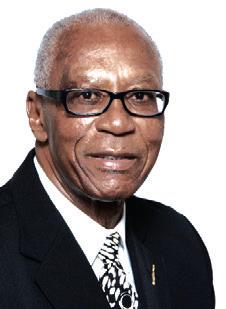
Bobby Mills, Ph.D.








America sin is serious because of what it does to individuals. Hence, sin has deadly consequences, and: “Hatred stirreth up strifes: but love covereth all sins.” (Proverbs 10: 12). Sin is personal rebellion against God. Sadly, President Trump’s MAGA-Cult Christian Right Evangelical followers wink at sin and turn a blind eye to ungodliness, and at the same time, the moral character of Presidential leadership profoundly in uences American culture. It is stated that, according to certain religious beliefs, the concept of divine love is thought to encompass many transgressions, with the exceptions being blasphemy against the Holy Spirit and attempting to challenge the truthfulness attributed to God. Attempting to make God a liar is a dangerous habit. e devil is the liar. erefore, the moral character demonstrated by presidential leadership signi cantly shapes the broader cultural landscape. Sadly, the Trump Administration is managing the immigration crisis with devilish cruelty; not with love and compassion, because the individuals are Brown and Black, not White. For example, behold the redcarpet Godly treatment given to South African Whites. e South African example is a bold-stark re ection of President Trump’s previous statement and sentiment concerning immigration: “I have no problem with immigration
as long as the individuals are coming from Scandinavian countries”. America, love is of God, and love is without hypocrisy and racial dissimilation, because love is universal in character. us:
“And the King shall say unto them, Verily I say unto you, Inasmuch as ye have done it unto one of the least of these my brethren, ye have done it unto me.” (Matthew 25:40). America, God through Jesus Christ has called us to universally love everyone regardless of race, creed, color or socioeconomic statuses.
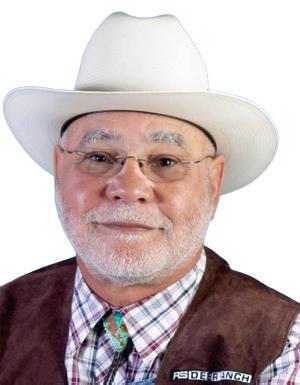

Roy Douglas Malonson, Publisher
In 2025, the ght for voting rights has evolved—but make no mistake, the enemy looks familiar. What used to come with re hoses, poll taxes, and intimidation now comes dressed in legislative language and map lines. Texas Republicans are at it again—this time redrawing congressional districts mid-decade, not to serve the people, but to silence them.
is is called gerrymandering—and it’s the modern-day voter suppression tool of choice. e GOP’s strategy is simple: pack our votes into a few overcrowded districts, or crack us apart so that no one community holds sway. Either way, they dilute our voice. It’s not new—but it’s getting more blatant.


Read more at aframnews.com
Loving money and material things rather than people is a devilish lifestyle habit, because money and material things will confuse individuals. To be loved is the greatest need of every individual, because it was love that called us into being: “Before I formed thee in the belly I knew thee; and before thou camest forth out of the womb I sancti ed thee:” (Jeremiah 1: 5). Understanding the plans that God has for your life is far more important than the acquisition of material things. is is why the Bible boldly declares that: “For the love of money is the root of all evil: which while some coveted a er, they have erred from the faith, and pierced themselves through with many sorrows.” (1 Timonthy 6:10). America, some Godly advice, do not love money and material things. Love God and other individuals. Something that can love you, because your deepest need is love, not material possessions. In due time, Jesus Christ died for the ungodly, because: “God commendeth his love toward us, in that, while we
Let’s be clear: this is not about fairness, this is about fear. Fear of the Black and Brown voters who now make up the majority of growth in Texas. Fear of a future where power is shared equally. So what do they do? Instead of competing for our votes, they’re slicing up our communities to erase our in uence before the next election cycle even begins.
And when Isaiah Martin, a young Black candidate, stood up to speak out at a redistricting hearing, they didn’t just shut him down—they arrested him. at moment tells us everything we need to know: truth is dangerous when power is corrupt. We’ve fought this ght before. From Selma to Houston, from courtrooms to classrooms, we’ve marched, bled, and organized for the right to be heard. And now, in 2025, the ght is back. But so are we. We must stay loud, stay focused, and stay engaged. Because if we let them draw us out of our districts, they’ll draw us out of our future too. e lines they draw today will de ne the power we hold tomorrow. Don’t let them steal it in silence.


Elections Cont.
Named a er Massachusetts Governor Elbridge Gerry, who in 1812 approved a district shaped like a salamander, gerrymandering refers to the manipulation of voting districts to bene t one political party over another.
Here’s how it works: Republicans use data to gure out exactly where their opponents—mainly Black, Latino, and progressive voters—live. en they draw maps in one of two ways. Either they “pack” those voters into a few districts to limit their overall in uence, or they “crack” them across multiple districts to dilute their
the voices of voters of color are being muted— on purpose. e most alarming part? As of now, no maps have been released to the public. e state held hearings across Texas—including one at the University of Houston—without showing residents what they were even being asked to comment on. People showed up anyway. ey lled the seats. ey raised their voices. And they demanded answers. At the Houston hearing, emotions boiled over when Isaiah Martin, a 27-year-old Black candidate for Congressional District 18, refused to yield the mic. As he passionately
August 1, 2025
spot. Dragged out in handcu s, Martin shouted, “History will NOT remember you for what you have done. It is a shame!” e charges— disrupting a meeting and resisting arrest— were later dropped, but the message was clear: speak out too loudly, and you’ll be silenced.
Martin’s arrest ignited outrage across the city. Elected o cials like Congresswoman Lizzie Fletcher, Sylvia Garcia, and Al Green stood with the people in calling out the redistricting e ort as an assault on democracy. For many Black and Latino Texans, it felt like history repeating itself— only now, the tactics are digital, legal-looking,
the Supreme Court ruled that parts of Texas’s previous maps intentionally discriminated against Black and Latino voters. e state has been sued repeatedly over racially biased redistricting. Yet the patterns persist. Since the 2013 Supreme Court decision that gutted the Voting Rights Act’s preclearance provision, Texas no longer has to get federal approval before making changes to voting laws. at opened the door for moves like this—stealth redistricting campaigns done quickly and quietly, with minimal public input and maximum political impact.
gressional seats. at’s despite only winning around 58% of the statewide vote. With shi ing demographics—driven by growth in Black, Latino, and immigrant communities—the GOP knows their days of domination are numbered unless they change the rules.
And that’s exactly what they’re doing.
But this isn’t just a Texas issue. It’s a national crisis. If Republicans can redraw the map to ip ve or more seats, they could retain control of the U.S. House in 2026— regardless of what the people actually want.
For Black voters in Texas, the message is clear: we are being targeted. Not with re hoses or poll taxes this time—but with boundary lines and silence. Gerrymandering is the new voter suppression, and it’s happening right now.
A rigged game where outcomes are decided before ballots are even cast.
In Texas, that rigging is being done with surgical precision. Districts snake around neighborhoods in unnatural shapes. Communities are split down the middle. And
mic. As he passionately criticized what he called “illegal gerrymandering,” police o cers were ordered to arrest him on the
e numbers don’t lie. Texas Republi-
digital, legal-looking, and harder to track. is isn’t the rst time Texas has been caught manipulating maps to suppress voters of color. In Abbott v. Perez, cans currently hold 25 of the state’s 38 con-
Democratic lawmakers are now weighing their response. Some have hinted at a legislative walkout to break quorum, similar to the one they staged in 2021 during a ght over voter suppression laws. Others have reached out to governors in blue states like California and where leaders have condemned Texas’s redistricting e orts as undemocratic and dangerous.
So if you’re wondering how they steal elecwe rise up, stay alert, and voting power. e result?
Illinois,
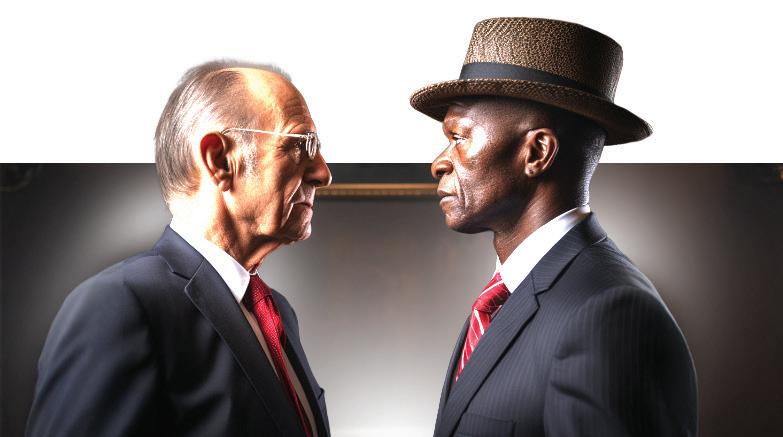
how they steal elections—this is how. One district at a time. One voice at a time. Unless we rise up, stay alert, and ght back.
Because our vote is our power. And they know it. AA
2013. e Black Lives Matter Network is formed by Patrisse Cullors, Alicia Garza, and Opal Tometi with the mission to “eradicate white supremacy and build local power.
2014. In Ferguson, Missouri, Michael Brown is killed by a police o cer, leading to multiple waves of protests and weeks of civil unrest throughout the city.
2016. Colin Kaepernick, Eric Reid, and Eli Harold kneel during the national anthem as a form of solidarity for the Black Lives Matter movement.
2018. Stephon Clark died a er being shot at least seven times by police in Sacramento, California.

2020. Black Lives Matter protests in direct response to the death of George Floyd a er being handcu ed and pinned to the ground by police.
1916. e Great Migration begins, where more than six million African Americans move from the rural South to various urban metropolitan areas.
1918. e Dyer Antilynching Bill is rst introduced, intending to establish lynching as a federal crime.



A group is proposing the development of a new interactive entrance for the Montgomery County Veterans Memorial Park and Central Library. The design will feature a landscaped garden and two restored U.S. Navy huts dating back to World War II.
A proposed congressional redistricting map submitted to the Texas House of Representatives appears to align with former President Donald Trump’s preferences, potentially providing Republicans with a strategic advantage to gain up to five additional seats in the upcoming midterm elections.
The JCPenney properties included in the sale span 35 states and Puerto Rico, with 21 locations in Texas and 19 in California.
Key elements of San Antonio officials’ proposed downtown sports and entertainment district are projected to generate approximately $18.7 billion in economic impact over a 30-year period.
A Stanley Cup champion and the voice who brought the moment to life are set to be inducted into the Dallas Stars Hall of Fame.

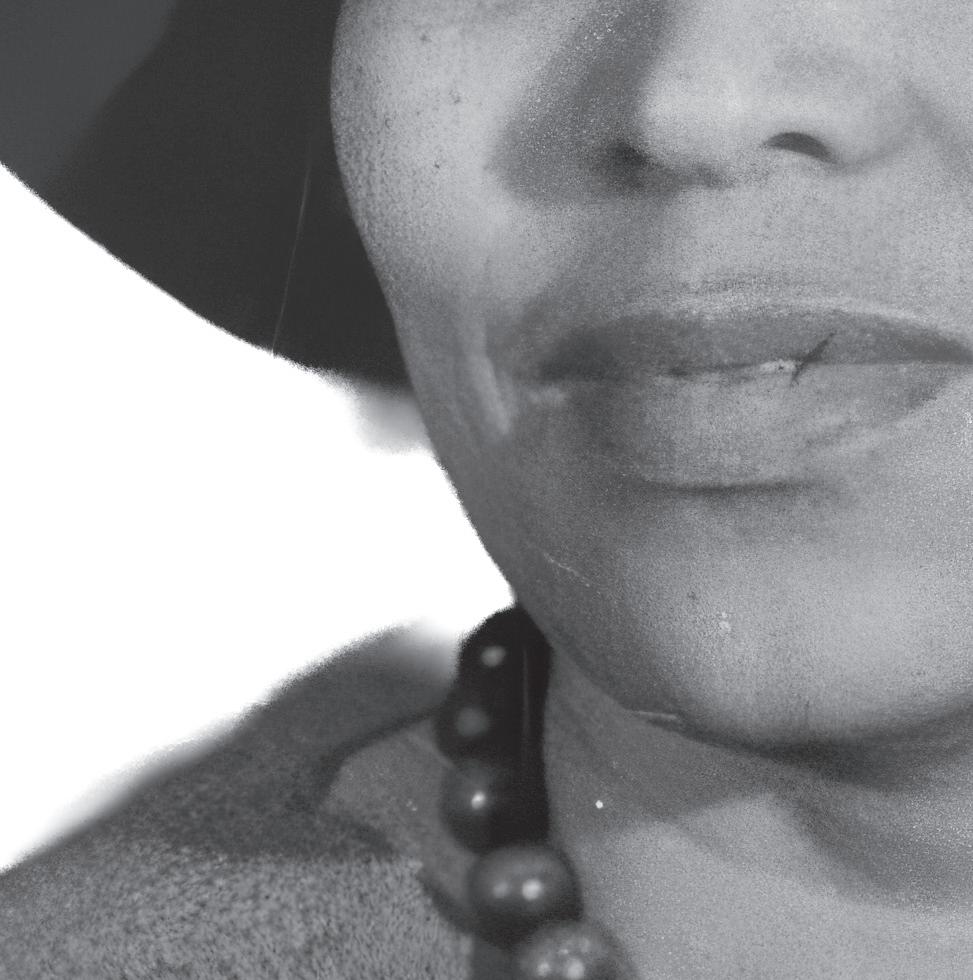
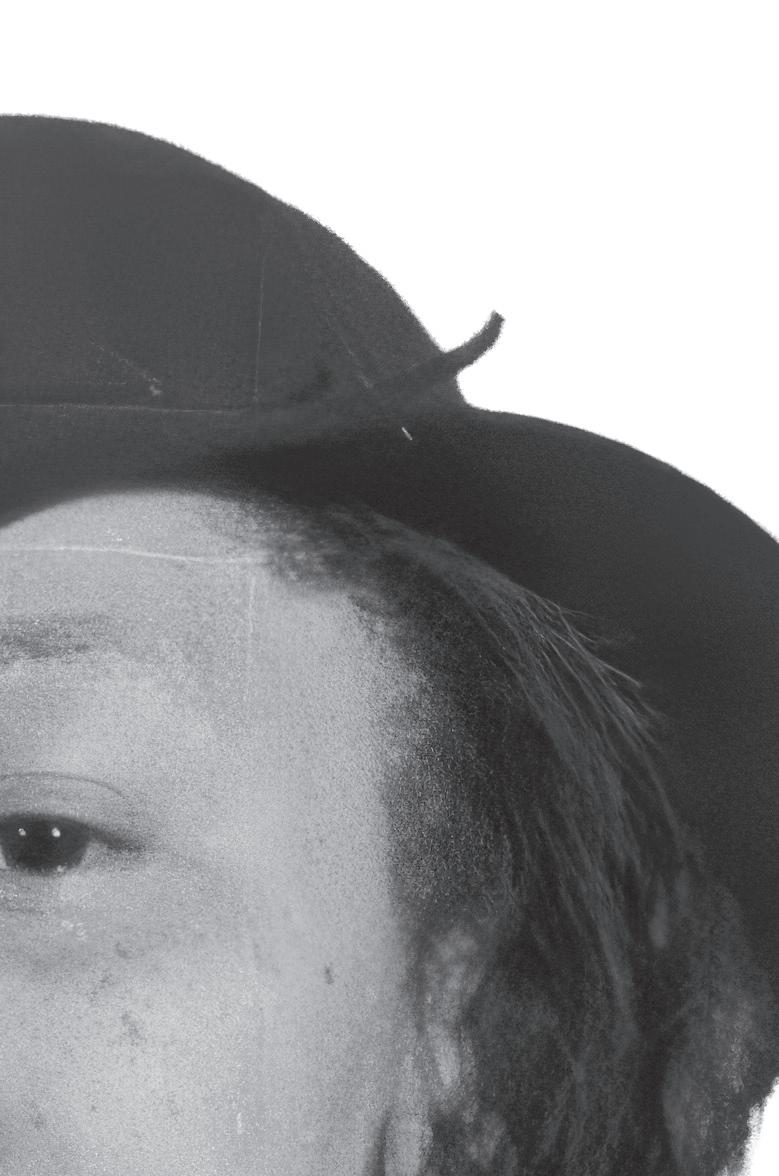

Zora Neale Hurston was a prominent American novelist, anthropologist, and folklorist known for her contributions to African American literature, particularly during the Harlem Renaissance. Her works, such as “ eir Eyes Were Watching God”, explored themes of identity, race, gender, and the complexities of life in the rural South, o en using African American vernacular and folklore. Despite facing periods of obscurity and criticism, her legacy has been revived, solidifying her place as a pioneering voice in American literature.
By: Bill King
A new poll from the Hobby School of Public A airs at the University of Houston, nds that 57% of Harris County residents believe the county is headed in the wrong direction. I cannot recall a time when public sentiment about Harris County was this negative.
What’s striking is that no demographic subgroup expressed a positive outlook. Democrats were evenly split at 50/50, while 57% of Independents and 68% of Republicans viewed the county as on the wrong track. Younger residents and men were slightly more dissatis ed than other groups.
Crime remains the top concern, identi ed as the most serious issue by
20% of respondents. at gure, while still leading, marks a notable decline compared to recent years. e cost of housing and rising property taxes followed, tied at 13%.
Other frequently cited issues included street conditions (11%), ooding (9%), and tra c congestion (7%), which is historically low for that category. Economic and racial inequality registered at 10% and 4%, respectively. Homelessness was mentioned by 7%, and a lack of adequate public transportation by 6%.
What stands out is how broadly dissatisfaction is spread. ere is only a 14-point gap between the most and least cited problems. No single issue

dominates. Instead, residents appear discontented across a wide range of concerns.
e picture became somewhat clearer when respondents were asked to list their top three concerns. Crime was again the leading concern at 45%, followed by poor street conditions at 39%, and ooding at 37%. High housing costs (33%) and property taxes (32%) rounded out the top ve. Housing costs and property taxes are, of course, closely linked. Many renters who cite high housing costs may not realize that rising property taxes o en lead to higher rents. If we combine the housing-related responses in both questions, they are well above any other issue.




Harris County Judge Lina Hidalgo appears to be bearing the brunt of the public dissatisfaction. Her net approval is just 4%, remarkably low given that Democrats dominate the county’s partisan split. Other commissioners have signi cantly better approval ratings, though they remain relatively unknown to most voters. is is ironic, given that county judges have limited independent power. Most of the policies that have voters so cross are based on decisions made by the Commissioners. Hidalgo’s highly publicized meltdowns during Commissioners Court meetings and her contro-


By: Travis McGee
How did we get here should be the biggest question? We got here through traditional old fashion politics; however, the government should fear “We the People” and not “We the People” fear the government whether that is local, state, or national government.
Our leadership should always be chosen or dictated by the will of the people vs our leadership being dictated by the dictatorship of our local, state, or national government.
e Democratic process should be a fair process for those hoping to be ELECTED by me or you vs those negotiating to be SELECTED by a chosen few.
Redistricting is all about Restricting the power, voice, resources, funding, vote, and representation of the historical CD-18 that has been around since 1972, however 53 years later it’s an attempt to at out take and ignore the very reason it was created in the rst place.
Congressional District 18 was actually created for the lack of representation of people of color, now in 2025 they are trying to dismantle it for that very reason in addition to the growth as well as diversity.
ose 2 factors scare the hell out of the




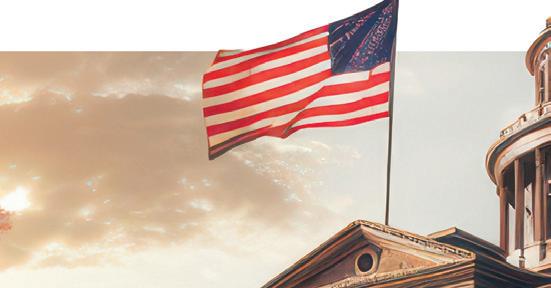
President of the United States so when the seat became vacant it was a Jim Crow type opportunity that they refused to pass up.
Let’s not forget CD 18, CD9, and CD 29 all overwhelmingly voted against Donald Trump, so he would rather weaken some of the Republican leadership locally to strengthening it on the national level by stealing seats through a nontransparent, premature, unconstitutional redistricting process.
CD 18 has had 6 congress members since 1972 and they are Barbara Jordan, Mickey Leeland, Craig Washington, Shelia Jackson Lee, Erica Lee Carter and Slyvester Turner.
First, the seat became very vulnerable when longtime Congresswoman Shelia Jackson Lee died of cancer
Secondly, Congresswoman Erica Lee Carter sought to nish her mother’s term however she decided not to seek a full 2-year term, instead endorsed longtime state rep, later Houston mayor, longtime friend, and colleague of the late Congresswoman Shelia Jackson Lee.




ird, in a very tight SELECTION process the Democratic o cers chose Sylvester Turner as their nominee for CD 18 for a full 2-year term, however Congressman Sylvester Turner was sworn in January 5,2025 he too died of cancer March 5,2025 and the seat has been vacant ever since. In closing we have to have a proactive grooming process for the Election process vs the Selection process. We currently have over 20 candidates seeking to ll the vacancy for Congressional District 18. You have over 20 di erent opportunities to research and choose your new Congress man or woman. Note: One of the worst natural disasters in Texas as well as America’s history took place July 4, 2025 in Kerrville, Tx with over 100 lives lost and counting with hundreds of million in property lost and damages, they indeed made this Special Session Special by not putting We the People Before Politics. If we continue to always take the high road the Maps they have in mind will lead us to nowhere.
By: Fred Smith
For generations, Black families have lled church pews with faith in their hearts and struggle in their pockets. Sunday a er Sunday, grandmothers, uncles, single mothers, and entire families have sacri ced their last dollar—not for bills, not for groceries, but for tithes. Not out of obligation, but out of belief. ey gave, trusting that God—and the institution representing Him—would provide.
But now, a di cult question lingers: a er all the giving, what was given back?
e Black church has long been more than just a place of worship. It has been our community center, our therapist, our rallying cry, our safe haven. It marched with us in the civil rights era. It helped bury our dead with dignity. It gave us hope when the world refused to. But somewhere along the way, a





shi occurred. While pastors grew wealthy and church buildings got upgrades, many of the faithful remained in poverty, living check to check, believing their sacri ce was holy— even as their lights got cut o on Monday. is isn’t a criticism of faith. It’s a call to accountability. When a system encourages giving until it hurts but o ers no













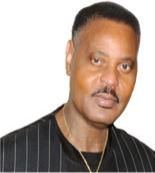
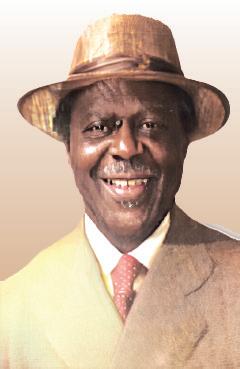








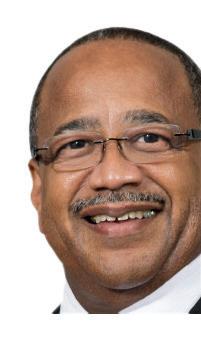
















































Nominate a deserving teacher, counselor, principal, early childhood learning center, school board or school district.










Created in 2002, the H‑E‑B Excellence in Education Awards was designed to honor and thank outstanding public school professionals. Through this program, H‑E‑B awards over $780,000 annually to deserving educators who go the extra mile to serve their students and communities.


To submit a nomination or application, go to HEBLovesTeachers.com Deadline for nominations September 30






















